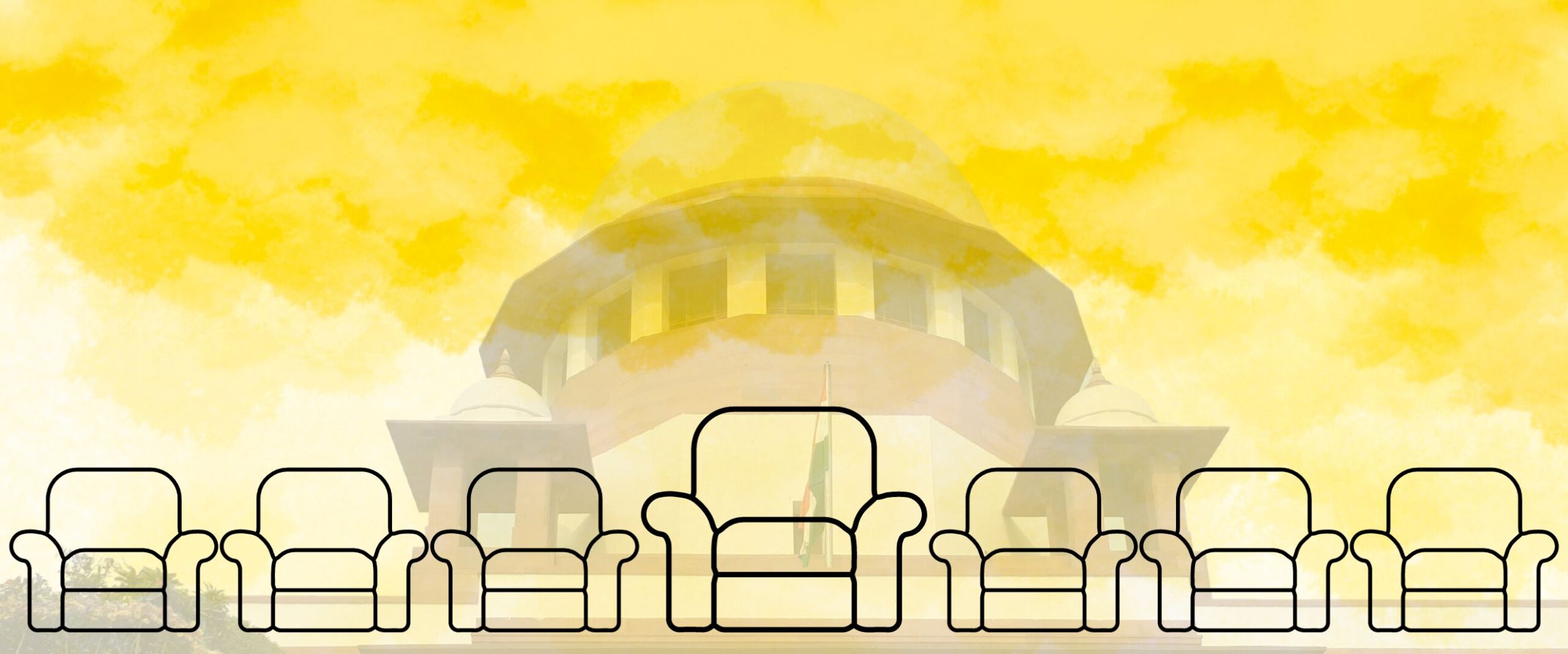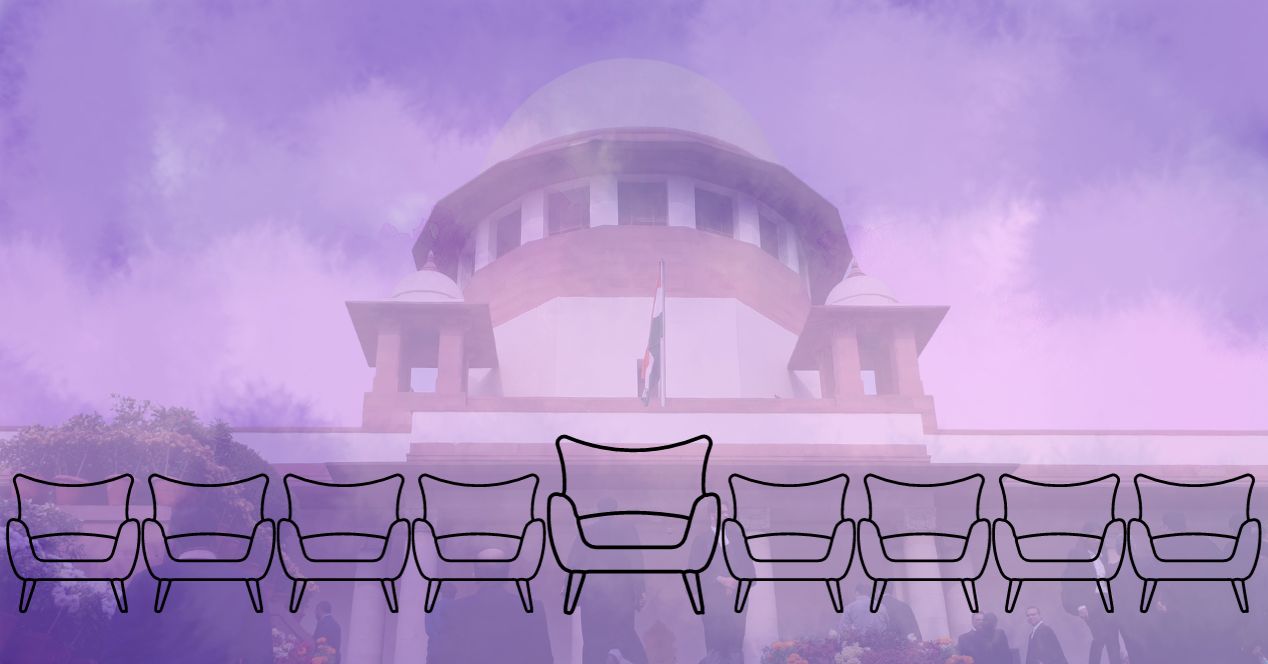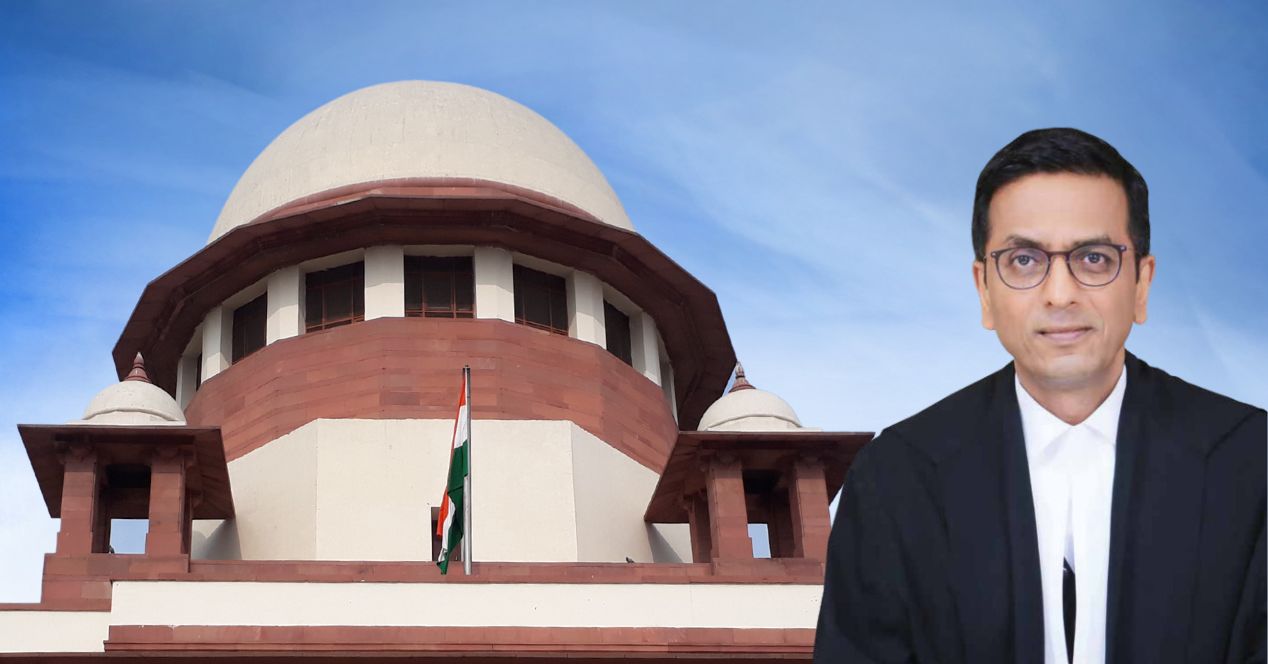Analysis
Which cases are going to be heard by a seven-judge bench in the Supreme Court?
The cases touch upon key issues like defection by members of legislature, freedom of press, and ‘first preference’ to backward classes

On 7 October 2023, the Supreme Court listed six seven-judge Constitution Bench cases for directions on 12 October 2023. Five-judge benches made a return to the Supreme Court late last year, and now, this year, the last quarter of the year looks set to have a flurry of seven-judge bench activity.
Early in October, a seven-judge Bench sat for a couple of days to reconsider the five-bench judgement in Narasimha Rao vs State (1998), which is about immunity for legislators taking bribes for votes and speeches in the House. The six cases that the Court has listed for directions deal with key issues including those relating to defection, freedom of press, and reservations for backward classes.
Here’s a quick summary of the facts and issues at stake in each of the six cases:
1) Arjun Flour Mills v State of Orissa
The issue, in this case, is whether or not a state legislature can make a law imposing a surcharge on sales tax. On 15 November 1997, the Odisha government amended the Odisha Sales Tax Act, 1997 to include a surcharge (additional tax) on dealers at a rate of 10 percent on payable tax if their annual turnover exceeded rupees Rs 10 lakh but remained under Rs 1 crore. If the annual turnover exceeded Rs 1 crore, the rate was 15 percent.
As per the Seventh Schedule, the power to make laws on the sale and purchase of goods is vested in state legislatures. However, since the surcharge was based on annual turnover, it was in the nature of income tax which falls within Parliament’s domain under the Union List. In 1983, a three-judge bench of the Court upheld a similar provision in the Bihar Finance Act, 1981, stating that the surcharge was in the nature of sales tax. In 1989, a seven-judge Bench, while considering a similar issue on the imposition of cess on royalty payable for land excavation, took a differing view. The Bench observed that the cess was on the royalty payable and not on the land itself and was therefore outside the competence of the state legislature.
On 13 August 1998, due to these conflicting judgements, the Supreme Court referred the matter to a five-judge Bench. This Constitution Bench took note of another five-judge Bench decision in S. Khodar v. State of Kerala (1974) where the imposition of additional sales tax based on turnover was considered. In Khodar, the Court ruled that the matter was within the competence of the state legislature.
On 6 October 1999, the case was referred to a seven-judge Bench in light of the conflict between the previous decisions of the Court.
2) N. Ravi v Speaker, Legislative Assembly Chennai
On 11 November 2003, the Tamil Nadu Assembly issued warrants for the arrest of five editorial staff of The Hindu, for publishing three articles on a speech by then Chief Minister Ms. Jayalalithaa. A warrant was also issued against the editor of a Tamil daily for reproducing these articles. The assembly’s resolution stated that the journalists, through the language used in the editorial, committed a “breach of privilege” by lowering the dignity of the legislature and tarnishing the image of the Chief Minister.
The Tamil Nadu Assembly’s decision was made under Article 194, which lays down the powers and privileges of the Houses of legislature. When the arrest warrants were challenged in the Supreme Court, the petitioners argued that privileges under Article 194 cannot override the fundamental right to freedom of the press provided under Article 19(1). Previously, two Constitution Benches of the Court had dealt with similar questions in a diverging manner. In 1958, a five-judge Bench ruled that the freedom of speech and expression was subject to the powers and privileges granted to legislatures under Article 194. In 1964, a seven-Judge Bench confirmed that the freedom of speech and expression does not limit legislative privileges. However, a legislature’s power to arrest persons for contempt of the House under Article 194 would remain subject to the right to life and personal liberty under Article 21.
On 8 December 2004, a five-judge Bench referred the matter to a seven-judge Bench to clarify the interplay between Articles 19, 21, and 194.
3) Aligarh Muslim University Through its Registrar Faizan Mustafa v Naresh Agarwal
This case is about the criteria for an educational institution to be considered a minority institution. In 1920, Aligarh Muslim University (AMU) was established through a central legislation “primarily for the education of Muslims” and stated that only Muslim persons could be members of the university court (the governing body). Subsequent amendments in 1951 and 1965 removed this restriction and allowed non-Muslim persons to become members of the university court. In 1967, a five-bench Bench of the Court, in Azeez Basha, held that since AMU was established by an act of legislature, it was not a minority institution. For an institution to qualify as a minority institution under Article 30, it must be established and administered by a minority.
In 1981, the word “university” in the Aligarh Muslim University Act, 1920 was redefined as follows: “the educational institution of their choice established by the Muslims of India, which originated as the Muhammadan Anglo-Oriental College, Aligarh, and which was subsequently incorporated as the Aligarh Muslim University.” Additionally, another provision was added to state that the university was empowered to promote the educational and cultural advancement of Muslims. In 2005, AMU reserved 50% of postgraduate medical courses for Muslim candidates claiming that AMU was a minority institution. The Allahabad HC ruled that this reservation was unconstitutional as AMU was not a minority institution. AMU, on the other hand, argued that Parliament, through the 1981 amendments, had nullified Azeez Basha and recognised AMU as a minority institution.
On 24 June 2006, the Court referred the matter to a seven-judge Bench to clarify the criteria for treating an institution as a minority institution and to assess the correctness of Azeez Basha. Read more
4) State of Punjab v Davinder Singh
This case concerns the power to sub-classify within the Scheduled Castes (SC) and Scheduled Tribes (ST) categories under Articles 16(1) and 16(4) in order to enact laws in favour of backward classes. In 1975, the Punjab government reserved 50 percent of the seats reserved for SCs for Balmikis and Mazhabi Sikhs. In 2004, this reservation was struck down by the five-judge Bench decision in E.V. Chinnaiah v. State of Andhra Pradesh (2004) which set aside a similar law passed in the state of Andhra Pradesh.
Subsequently, the Punjab government passed the Punjab Scheduled Caste and Backward Classes (Reservation in Services) Act, 2006, which sub-classified seats reserved for SCs. Section 4(5) stipulated that 50 percent of the seats reserved for SCs would be offered to Balmikis and Mazhabi Sikhs on “first preference” basis. In 2010, the High Court struck down Section 4(5), observing that the provision created an unconstitutional sub-division within the SC category as per E.V. Chinnaiah.
In 2014, upon hearing an appeal by the Punjab government, a three-judge Bench referred the reconsideration of E.V. Chinnaiah to a five-judge Bench. On 27 August 2020, the five-judge Bench unanimously observed that states, under Article 16(4), had the power to provide reservations for “backward classes.” Further, as per the Supreme Court’s decision in Indira Sawhney (1992), SC, STs and Other Backward Classes “stand on the same footing and cannot be treated as different…” Accordingly, the 2020 decision, having also been delivered by a five-judge Bench, was referred to a seven-judge Bench to provide clarity. Read more
5) Rojer Mathew v South Indian Bank Ltd.
This case concerns the scope of Money Bills. Only the Lok Sabha can introduce and amend Money Bills. On 31 March 2017, Parliament passed the Finance Act, 2017 (the “Act”). Part XIV of this Act merged provisions concerning the structure, organisation, and conditions of service of all kinds of tribunals.
Section 184 of the Act empowered the Union government to make rules for the qualification, appointment, and removal of persons appointed to tribunals (among other rules). Soon after the Act was passed, 17 petitions, including ones filed by the Central Administrative Tribunal, National Green Tribunal Bar Association and Revenue Bar Association, challenged the Act. They argued that Part XIV of the Act dealt with issues that did not qualify as purely fiscal measures and therefore could not be passed as a Money Bill (The Rajya Sabha cannot introduce, amend, or reject a Money Bill). Further, they argued that these measures infringed upon the independence of the judiciary and separation of powers.
Previously, a five-judge Bench of the Supreme Court in Madras Bar Association v. Union of India (2010) had ruled that the legislature’s powers to decide the scope of disputes to be decided by courts and tribunals was subject to constitutional limitations. On 13 November 2019, another five-judge Bench struck down the provisions that were considered to be affecting judicial independence. However, the question of the passage of the Finance Act as a Money Bill was referred to a seven-judge Bench as it conflicted with the five-judge Bench decision on the same question in the Aadhaar case. Read more
6) Subhash Desai v Principal Secretary, Governor of Maharashtra
In November 2019, the ruling Maha Vikas Aghadi (MVA) alliance government was struck by (what would be the first) rebellion among its constituent parties. Over forty elected members of the Shiv Sena called themselves the “real Shiv Sena” and declared their intention to exit the MVA alliance. As this decision was against the wishes of party chief and then Chief Minister Uddhav Thackeray, the remaining members of the party filed disqualification proceedings against the rebel members for defection from the party. The rebel faction claimed that since they comprised the majority of the elected party members, they made up the actual Shiv Sena party and therefore could not be disqualified from the legislature.
A key development in this political saga was the removal notice against the Acting Speaker, filed immediately after Thackeray’s request to begin disqualification proceedings. As per the five-judge bench decision of the Supreme Court in Nabam Rebia v. Deputy Speaker (2016), the Speaker cannot consider disqualification petitions if they are faced with removal themselves.
The Thackeray faction approached the Supreme Court for clarity on the matter. While the Court’s decision upheld the Speaker’s powers to decide matters of disqualification within the House at the first instance, it ruled that it could not decide on the matter of “freezing” the Speaker’s powers with a disqualification notice. Instead, the matter was referred to a seven-judge Bench to examine the correctness of Nabam Rebia. Read more




